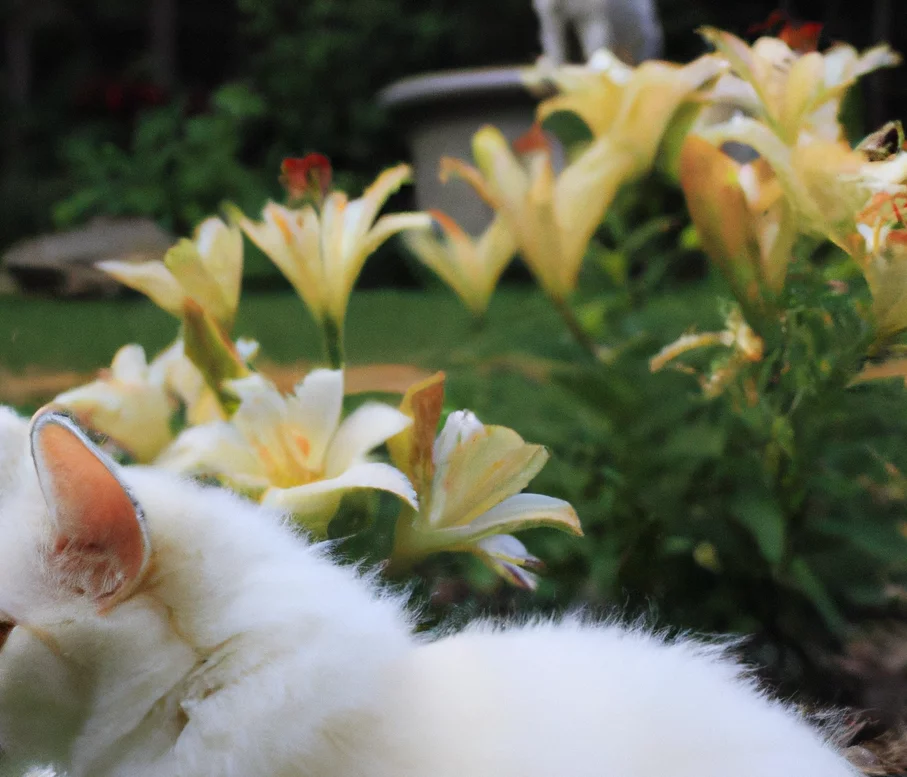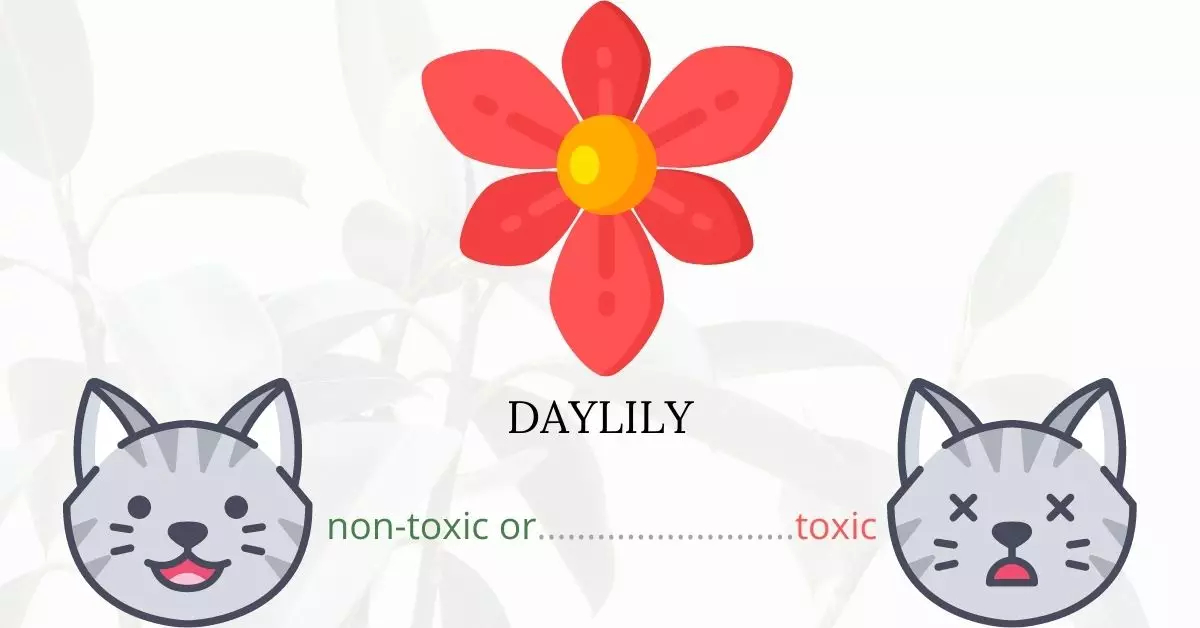Absolutely, daylilies are toxic to cats. Even in minimal amounts, ingestion can pose severe risks. Immediate veterinary care is paramount for a cat’s survival if exposed to daylily poisoning. Initial symptoms may include dehydration, lethargy, loss of appetite, and vomiting. Without timely intervention, these symptoms can rapidly escalate to kidney failure, disorientation, seizures, and even death within a few hours.
This article was written in collaboration with a team of experienced DVMs (Doctors of Veterinary Medicine). Their invaluable insights enable us to present accurate and current data on the potential dangers of various plants, specifically daylilies in this context, to our feline companions. Additionally, our research encompasses high-authority sources such as ASPCA and PetMD to ensure comprehensive coverage on every plant topic.
Clinical Signs of Daylily Poisoning in Cats

Recognizing the signs of daylily poisoning early on is crucial to ensure the safety and health of your cat. If your feline companion comes in contact with, inhales the fragrance of, or ingests a daylily plant, they might display the following symptoms:
- Lethargy: A cat might become lethargic due to the toxins in the daylily affecting its energy levels and overall well-being.
- Weakness: The toxins from the plant can cause muscular weakness, making it difficult for cats to move or respond as they usually would.
- Excessive Urination: Daylily toxins can adversely affect a cat’s kidneys, leading to an increase in urine production.
- Excessive Thirst: As a result of kidney disturbance, cats might consume more water than usual.
- Irregular Heartbeat: The plant’s toxins can affect the cat’s cardiovascular system, leading to arrhythmias or irregular heartbeats.
- Vomiting: The gastrointestinal tract is irritated by the ingested toxins, causing nausea and vomiting.
- Diarrhea: The toxins can disrupt the normal function of the digestive system, leading to diarrhea.
- Halitosis: Bad breath or halitosis can be a sign of internal disturbances caused by the toxins, particularly in the digestive system.
- Inappetence: A reduced desire to eat can be a direct result of the nausea and general malaise caused by the poisoning.
- Seizures: The neurological system might be affected, leading to seizures in severe cases of poisoning.
- Death: In the worst scenarios, if the symptoms are not addressed promptly, the cumulative effects of the toxins can lead to death.
Should your cat display any of these symptoms after potential exposure to daylilies, it’s imperative to seek veterinary care immediately.
First Aid and Treatment of Daylily Poisoning in Cats

The key to a good prognosis is to get treatment before your cat’s kidneys shut down. The veterinarian may use medication to induce vomiting or give the cat an activated charcoal solution to bond with the harmful plant ingredient and then pass it through the body in feces.
The veterinarian will most likely start your cat on IV fluids to help him rehydrate and also aid in the toxin’s excretion. When fluids pass through your cat’s urinary system, they pass via the kidneys and bring any toxins with them, which are then excreted in the urine waste. In order to have a good prognosis, intensive fluid therapy must be started within 18 hours of consumption.
Recovery from Daylily Poisoning in Cats

Prompt veterinary treatment will give your cat a positive prognosis. Your cat’s age and general health condition prior to poisoning can also be a factor in his or her full recovery from daylily poisoning
Prevention of Daylily Poisoning in Cats
Daylilies may look aesthetically pleasing in your homes and gardens however, it is highly advisable to avoid growing this plant if you are a cat owner. Cats are generally curious and they sometimes nibble on plants that they usually pass by. Limit your cat’s access outdoors to also minimize his or her risk of exposure to toxic plants outside your home.
If you love plants but have cats at home, check out these lists:





